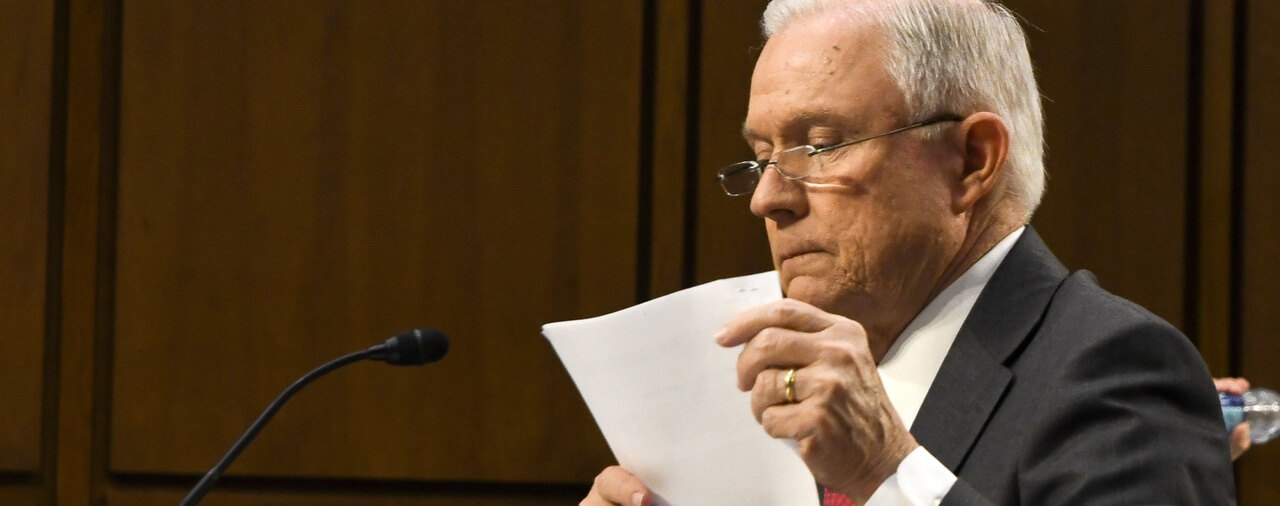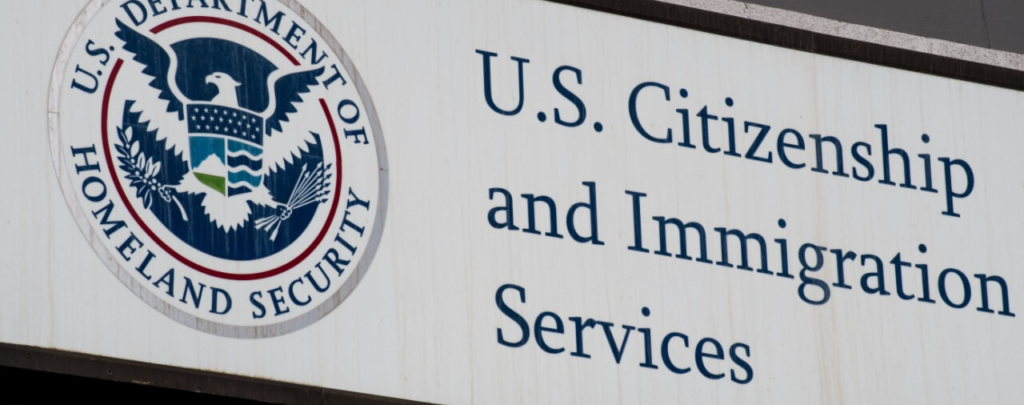Publication of Matter of A-B-, 27 I&N Dec. 316 (A.G. 2018)
On June 11, 2018, Attorney General Jeff Sessions issued his second significant immigration precedent decision in the past month [see first] in the Matter of A-B-, 27 I&N Dec. 316 (A.G. 2018) [PDF version]. In the decision, the Attorney General clarified the parameters of the term “particular social group,” which is one of the five bases on which an individual may assert that he or she has a fear of persecution in order to establish eligibility for refugee status, asylum status, or withholding of removal. Specifically, the decision dealt with victims of private criminal activity who seek to establish eligibility for asylum based on persecution on account of being in a particular social group. Among other things, the Attorney General held that an applicant seeking asylum on such basis, in addition to clearly delineating his or her proposed particular social group, “must show that the government condoned the private actions or demonstrated an inability to protect the victims.” In effect, this decision narrows the circumstances in which a victim of private criminal activity (e.g., gang violence, domestic violence) may qualify for asylum and/or withholding of removal. The Attorney General overruled Matter of A-R-C-G-, 26 I&N Dec. 338 (BIA 2014) [PDF version] in issuing his new decision.
Attorney General Delivers Remarks on New Decision and Immigration Backlog
We will publish a comprehensive series of articles on the important Matter of A-B- decision in the near future, which we encourage readers to look forward to. In this post, we will briefly examine remarks delivered by the Attorney General to the Executive Office for Immigration Review Legal Training Program just hours before his decision in Matter of A-B- was released. You may see the full remarks here: [PDF version].
The Attorney General stated that it was his policy to “end the lawlessness that now exists in our immigration system.” To this effect, he cited to his recently-announced “zero tolerance” policy for prosecuting illegal entry cases [see article] and the related decision of the Department of Homeland Security (DHS) to refer all such cases to the DOJ for prosecution [see article]. He also referenced his decision to send an additional 35 prosecutors and 18 immigration judges to locations along the Southwest border [see article].
Increase of Asylum Claims Contributing to Backlog
Having outlined those steps, the Attorney General moved to the main topic of his speech: The asylum system. He stated that “[t]he asylum system is being abused to the detriment of the rule of law, sound public policy, and public safety-and to the detriment of people with just claims.” Specifically, he asserted that individuals who lack approvable cases for asylum are able to instigate a prolonged legal process by “[s]aying a few simple words-claiming a fear of return…” He stated that, in many of these cases, aliens who are released from custody while their cases are pending never show up for their immigration hearings. He described the policies that allow this as “catch and release,” which we have discussed in prior articles that the Administration is taking steps to end [see article].
The Attorney General stated that beginning in 2009 an increasing number of aliens had passed credible fear interviews for asylum and been released from custody pending a full hearing on their claims. He maintained that this created “[p]owerful incentives” for aliens to enter the United States illegally and then claim a credible fear of returning to their home countries, regardless of whether that fear was legitimate. As evidence, the Attorney General noted that the DHS had conducted 5,000 credible fear interviews in 2009, but 94,000 such interviews in 2016. He attributed this to the subsequent surge in illegal border crossings and aliens determined to be inadmissible at ports of entry.
Interestingly, while the number of asylum claims “skyrocketed,” the vast majority of applications, according to the Attorney General, have been denied. To this effect, he explained that “only 20 percent of claims have been found to be meritorious after a hearing before an [i]mmigration [j]udge” over the past five years.
The Attorney General acknowledged that many of the individuals crossing the border illegally “are leaving difficult and dangerous situations.” However, he noted, the Government “cannot abandon legal discipline and sound legal concepts” in adjudicating asylum claims. Interestingly, he argued in his speech that the reason was not only to avoid encouraging illegal immigration by inadvertently incentivizing meritless asylum claims, but also because meritless asylum claims have the effect of burying meritorious asylum claims.
Attorney General Discusses Decision in Matter of A-B-
The Attorney General noted that U.S. asylum law is available only to those “who leave their home country because of persecution or fear on account of race, religion, nationality, [] membership in a particular social group, or political opinion.” He added, accordingly, that it “was never meant to alleviate all problems-even all serious problems-that people face every day all over the world.”
It was at this point that the Attorney General referenced his then impending decision in Matter of A-B-. He described the decision as “restor[ing] sound principles of asylum and long standing principles of immigration law.” He stated that his decision “advances the original intent and purpose of the INA…” Speaking to the immigration judges in attendance, the Attorney General promised that his decision would “provide more clarity” and “help [them] to rule consistently and fairly.”
Attorney General Encourages Immigration Judges to Resolve Cases Expeditiously
The Attorney General also referenced the current case backlog of over 700,000 pending cases. He noted that the number of pending cases is “more than triple what it was in 2009.” We discussed the immigration backlog in an article about a Government Accountability Office (GAO) report on the subject [see article].
The Attorney General stated that the DOJ is now asking each immigration judge to complete 700 cases per year. This new policy had been reported by various news outlets, but the Attorney General’s remarks on June 11, 2018, represent one of the first on-the-record statements about the policy. He described it as “a rational management policy to ensure consistency, accountability, and efficiency in our immigration court system.” He reiterated that immigration judges have the DOJ’s support “in this critically important and historic effort.”
The Attorney General also stated that the DOJ expects to hire “more than 100 new immigration judges this calendar year.” You can see our collection of articles about new immigration judges in our on-site index [see index]. In order to ensure that immigration judges can resolve cases expeditiously, he stated that the DOJ is “actively working with … DHS to ensure that [it] can deploy judges electronically and by video-teleconference where needed and to obtain courtroom facilities.” We discussed video-teleconference hearings in posts about the EOIR’s efforts [see article] and the DHS’s [see article].
Conclusion
The Attorney General has implemented several far-reaching policies and interpretations of the immigration laws to allow for the more expeditious handling of immigration cases. For individuals facing immigration proceedings, these changes serve to highlight the importance of consulting with an experienced immigration attorney in the area of removal and deportation defense or protection, if applicable. Regardless of the current state of immigration law, it will always be important to have expert representation.





